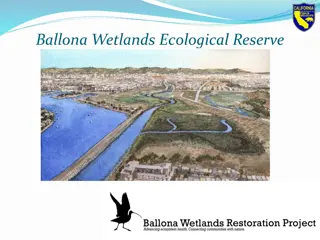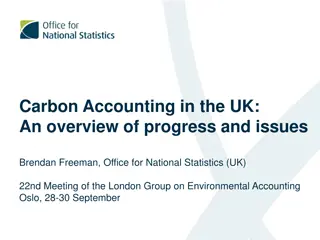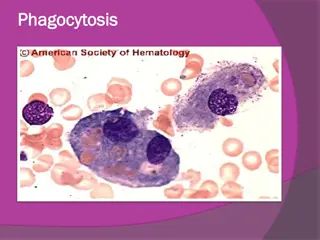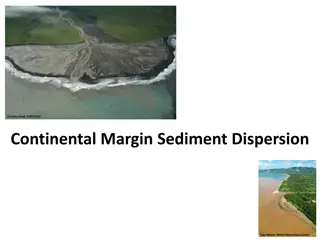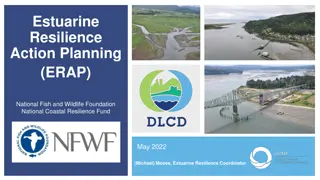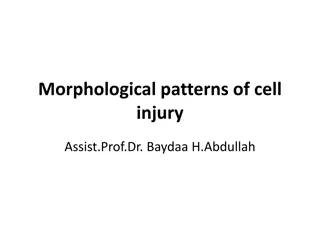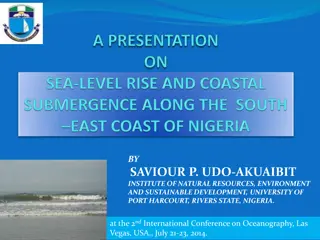Modelling Estuarine Habitats in the Upper Sea Scheldt: Human-Induced Adaptations
Explore a research study on modelling estuarine habitats in the Upper Sea Scheldt under various human-induced channel and floodplain adaptations. The study examines the impact of interventions on habitat size, water quality, ecosystem, and more, providing insights into the future of the estuarine en
3 views • 13 slides
Conservation Efforts and Restoration Plans for Ballona Wetlands
The Ballona Wetlands Ecological Reserve is undergoing long-term restoration planning to restore tidal circulation, provide diverse wetland habitats, and create new habitat areas for native species. Various initiatives and projects, such as the Dutch Slough Carbon Sequestration and the EIR Project Go
1 views • 15 slides
Understanding Rocks: Types, Formation, and Importance in Geology
Rocks are solid accumulations of minerals found in the Earth's lithosphere. They are classified into igneous, sedimentary, and metamorphic types based on their mineral composition. Rocks play a crucial role as geological materials for construction and historical buildings. Learn about the properties
0 views • 31 slides
Overview of Carbon Accounting in the UK: Progress and Challenges
The project aims to test the feasibility of producing SEE-EEA style Carbon Accounts, assess data sources, and lay a path for further development. Carbon accounting in SEE-EEA identifies carbon as a key theme, supporting ecosystem measurement. The UK's carbon accounts cover geosphere, biosphere, ocea
0 views • 15 slides
Understanding Phagocytosis, Inflammation, and Granulomas in Tuberculosis
Phagocytosis is a crucial process where cells engulf and digest pathogens. Inflammation responses involve various immune cells like neutrophils, plasma cells, lymphocytes, and macrophages. Granulomas, typical in diseases like tuberculosis, are mass accumulations in chronic inflammation. Tuberculosis
0 views • 18 slides
Understanding Sediment Dispersion along the Continental Margin
This content explores the influences and types of sediment dispersion systems along the continental margin. Processes affecting sediment supply, depositional environments, and different dispersal systems like Estuarine Accumulations Dominated and Marine Dispersal Dominated are discussed. Walsh and N
0 views • 8 slides
Estuarine Resilience Action Planning Overview
Estuarine Resilience Action Planning (ERAP) led by Michael Moses aims to enhance coastal resilience through community-driven, green infrastructure solutions. The three-part approach includes needs assessment, action analyses, and goal setting. The focus is on leveraging local partnerships and incorp
0 views • 6 slides
Morphological Patterns of Cell Injury and Degeneration
This informative content discusses morphological patterns of cell injury, focusing on reversible cell injury or degeneration caused by intracellular and interstitial accumulations. It covers classifications such as primary changes in the cell, intracellular accumulation of water, fat, carbohydrates,
0 views • 18 slides
Analyzing Shoreline Recession and Estuarine Current Velocities in South-Eastern Nigeria
Coastal submergence and shoreline retreat due to sea-level rise and climate change pose threats to shoreline management in the Niger Delta. This study focuses on analyzing shoreline recession and estuarine current velocities in south-eastern Nigeria, using techniques like shoreline mapping and beach
0 views • 19 slides

